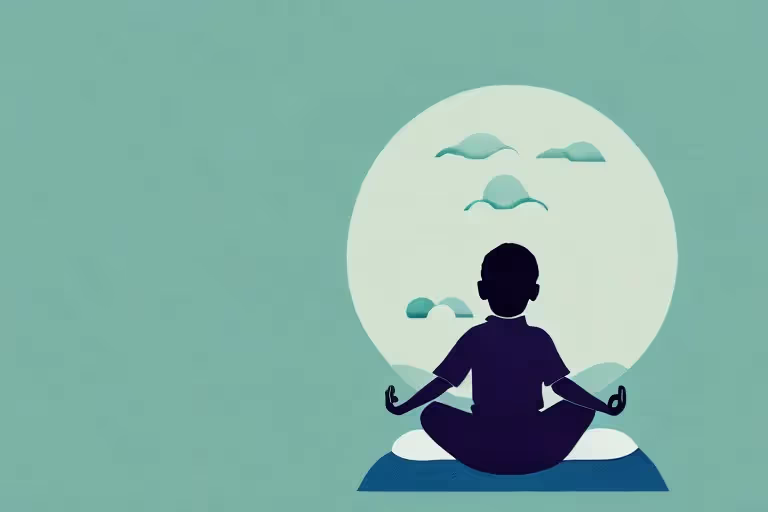Borderline Personality Disorder (BPD) is a complex mental health condition that is characterized by a pattern of ongoing instability in moods, behavior, self-image, and functioning. These experiences often result in impulsive actions and unstable relationships. A person with BPD may experience intense episodes of anger, depression, and anxiety that may last from only a few hours to days.
People with BPD may have extreme reactions to perceived slights or criticism, and their emotions can be quite intense and fluctuating rapidly. Some people with this disorder also have high rates of co-occurring mental disorders, such as mood disorders, anxiety disorders, and eating disorders, along with substance abuse, self-harm, suicidal thinking and behaviors, and suicide.
Understanding BPD
While the origins of BPD are not yet fully understood, it is believed to be a combination of genetic, brain, environmental, and social factors. It's important to note that BPD is not a character flaw or a sign of weakness; it is a serious mental health disorder that requires appropriate treatment and management.
Individuals with BPD often have a distorted self-image and may feel fundamentally flawed or worthless. They may have a hard time maintaining stable relationships and may fluctuate between idealizing someone one moment and then suddenly believing the person doesn't care or is cruel. This can result in frantic efforts to avoid real or imagined abandonment.
Signs and Symptoms
People with BPD tend to view things in extremes, such as all good or all bad. Their opinions of other people can also change quickly. An individual who is seen as a friend one day may be considered an enemy or traitor the next. These shifting feelings can lead to intense and unstable relationships.
Other signs may include, feeling unsure about their identity; intense fear of abandonment; engaging in risky behaviors; having suicidal thoughts or behaviors; feeling empty; having intense and changeable moods; and having difficulty controlling anger.
Diagnosis
Diagnosis of BPD is typically based on a detailed interview with the patient and, when available, family members or close friends. Because the symptoms of BPD can be similar to those of other psychiatric disorders, a comprehensive psychiatric evaluation may be necessary to reach an accurate diagnosis.
It's important to note that BPD can be diagnosed in adolescents and adults, but only when the pattern of behavior has been present for an extended period and when it is severe and persistent.
Treatment and Management
Treatment for BPD typically involves a combination of therapy, medication, and self-care. One of the most important aspects of managing BPD is to establish a trusting, collaborative relationship with a mental health professional.

Psychotherapy, such as dialectical behavior therapy (DBT), cognitive behavioral therapy (CBT), and schema-focused therapy, can be effective in reducing self-harming behaviors and improving interpersonal relationships. Medication, while not a cure, can help manage co-occurring disorders such as depression or anxiety.
Psychotherapy
Psychotherapy is often considered the first line of treatment for BPD. This may include individual therapy, group therapy, or family therapy. The goal of therapy is to help individuals with BPD understand their behaviors and motivations, develop coping strategies, and improve their relationships.
Dialectical behavior therapy (DBT), for example, is a type of cognitive-behavioral therapy that emphasizes the development of four skill sets: mindfulness, distress tolerance, emotion regulation, and interpersonal effectiveness. DBT has been found to be particularly effective in reducing suicidal behavior, non-suicidal self-injury, and hospitalizations for suicidal ideation.
Medication
While there is no specific drug to treat BPD, medications can be used to manage specific symptoms or co-occurring disorders. For example, mood stabilizers and antidepressants can help with mood swings and depressive symptoms, while antipsychotics can help with distortions in thinking or perception.
It's important to note that medication should be used in conjunction with therapy, not as a substitute. Furthermore, all medications have potential side effects and should be taken under the supervision of a healthcare provider.
Living with BPD
Living with BPD can be challenging, but with the right treatment and support, individuals with BPD can lead fulfilling lives. It's important for individuals with BPD to work closely with their healthcare providers, adhere to their treatment plan, and practice good self-care.

Support from loved ones can also make a significant difference. Family and friends can provide emotional support, help with treatment, and assist in managing crises. Additionally, there are numerous support groups and resources available for individuals with BPD and their loved ones.
Self-Care
Self-care is an important part of managing BPD. This can include regular exercise, a healthy diet, adequate sleep, and avoiding alcohol and drugs. It can also involve learning and practicing mindfulness and relaxation techniques to help manage stress and improve mental well-being.
Additionally, individuals with BPD can benefit from developing a crisis plan, which can include identifying triggers, recognizing warning signs of a crisis, outlining coping strategies, and listing emergency contact information.
Support for Loved Ones
Supporting a loved one with BPD can be challenging, but there are resources available. Family therapy, for example, can help family members understand BPD and learn strategies to support their loved one. There are also support groups and educational programs available for family members and friends.
It's important for loved ones to also take care of their own mental health. This can include seeking therapy, practicing self-care, setting boundaries, and seeking support from others.
Conclusion
Borderline Personality Disorder is a complex mental health disorder that can significantly impact an individual's life. However, with the right treatment and support, individuals with BPD can lead fulfilling lives. It's important for individuals with BPD, and their loved ones, to seek help and support, and to remember that recovery is possible.
While BPD can be challenging to manage, there is hope. With increased awareness, understanding, and research, more effective treatments and supports are being developed to help individuals with BPD and their loved ones.



.webp)






.avif)

%20(1).avif)


.avif)
.avif)
.webp)


.avif)


















































































































.avif)

















.svg)









